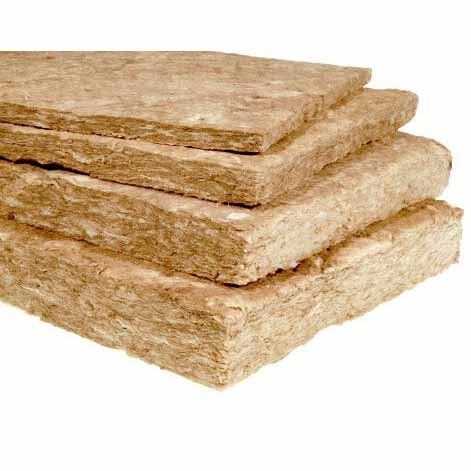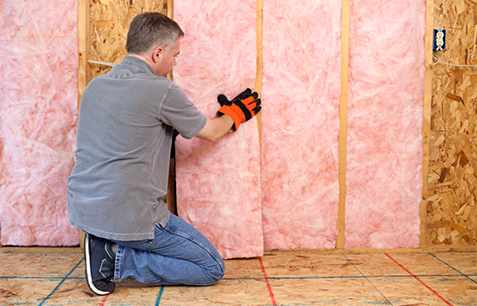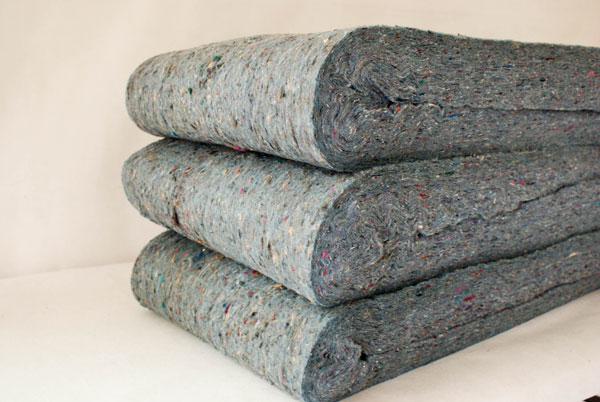Soundproofing your walls can make a huge difference. Whether it’s reducing noise from outside or between rooms, proper insulation is key.
In today’s noisy world, peace and quiet at home can be a rare luxury. Soundproof insulation for walls can help create a serene environment, free from unwanted noise. But with so many options available, finding the best one can be challenging.
This guide will help you understand the different types of soundproof insulation and how they can benefit your home. From materials to installation tips, we cover everything you need to know to make an informed decision. Enjoy a quieter, more comfortable living space with the right soundproof insulation for your walls. Let’s dive in and explore the best options available.
Introduction To Soundproof Insulation
Living in a noisy environment can be frustrating. Whether it’s traffic sounds, loud neighbors, or household noise, unwanted sounds can disrupt your peace. This is where soundproof insulation comes in. Soundproof insulation helps to reduce or block noise from entering or leaving a room. It creates a quieter, more serene living space. In this post, we’ll explore the importance of soundproofing, common noise issues, and the best soundproof insulation for walls.
Importance Of Soundproofing
Soundproofing your walls is crucial for several reasons. It enhances privacy by preventing conversations from being overheard. It also improves concentration, making it easier to work or study without distractions. Additionally, soundproofing can create a more relaxing environment, reducing stress and improving sleep quality. For those with home theaters or music studios, soundproof insulation ensures better acoustics and sound quality.
Common Noise Issues
Many common noise issues can be addressed with soundproof insulation. Some of these include:
- Traffic Noise: Cars, buses, and trucks passing by your home.
- Neighbor Noise: Loud conversations, music, or pets from next door.
- Household Noise: Appliances, plumbing, or footsteps from other rooms.
- Construction Noise: Ongoing construction or renovation work nearby.
These noises can be disruptive and affect your quality of life. Soundproof insulation can help to mitigate these issues, creating a quieter and more comfortable living space.

Credit: www.soundproofingstore.co.uk
Types Of Soundproof Insulation
Soundproof insulation is essential for reducing noise between rooms. Choosing the right type depends on your needs and budget. Here are some effective soundproof insulation options:
Fiberglass Insulation
Fiberglass insulation is a popular choice for soundproofing. It consists of fine glass fibers and is available in batts or rolls. Its porous nature helps trap sound waves, reducing noise transmission.
- Cost-effective
- Easy to install
- Fire-resistant
Mineral Wool Insulation
Mineral wool insulation is made from natural rock and slag. It is denser than fiberglass, providing better sound absorption. It also offers excellent thermal insulation.
- High-density material
- Great sound absorption
- Resistant to fire and moisture
Foam Insulation
Foam insulation comes in two main forms: spray foam and foam panels. Spray foam expands and fills gaps, creating an airtight seal. Foam panels are pre-cut and installed between wall studs.
- Effective in sealing gaps
- Provides thermal insulation
- Lightweight and easy to handle
Soundproof Drywall
Soundproof drywall is specially designed to reduce noise. It is thicker and denser than regular drywall, often made with layers of gypsum and other sound-damping materials.
- Reduces noise transmission
- Simple to install
- Can be painted or finished like regular drywall
Each type of insulation offers unique benefits. Assess your needs and choose the right one for your space.
Factors To Consider
Choosing the best soundproof insulation for your walls can be challenging. There are several factors you must consider to make the right choice. Each factor plays a critical role in the effectiveness of the insulation. Below, we explore some key factors you should keep in mind.
Thickness And Density
The thickness and density of the insulation material are crucial. Thicker insulation often provides better soundproofing. Dense materials absorb more sound waves, reducing noise. It’s important to measure your wall space and select the right size for optimal results.
Installation Process
Consider the installation process before making a decision. Some soundproof insulation materials are easy to install, while others require professional help. If you prefer a DIY project, look for user-friendly options. Check if the materials come with installation guides or require special tools.
Cost And Budget
Your budget will significantly influence your choice. High-quality soundproof insulation can be expensive. However, there are affordable options that still offer good performance. Compare prices and read reviews to find the best value for your money.
Benefits Of Soundproof Insulation
Soundproof insulation offers numerous benefits for homes and offices. It helps reduce noise, creates a more peaceful environment, and improves overall quality of life. Let’s explore the key benefits of soundproof insulation for walls.
Enhanced Privacy
Soundproof insulation provides enhanced privacy. It blocks noise from entering or exiting a room. This is especially useful in homes with thin walls. You can enjoy personal conversations without worry. It also keeps sounds from disturbing others in your home or office.
Improved Comfort
With soundproof insulation, your space becomes more comfortable. It reduces noise pollution from outside sources. This includes traffic, neighbors, or noisy appliances. A quieter space means a better environment for relaxation and focus.
Increased Property Value
Installing soundproof insulation can increase the value of your property. Potential buyers appreciate the added privacy and comfort. It’s a small investment that can pay off in the long run. A quieter, more peaceful home is always in demand.
Diy Vs Professional Installation
Choosing between DIY and professional installation for soundproof insulation can be challenging. Each option has its own advantages and drawbacks. Understanding these can help you make the best decision for your needs and budget.
Pros And Cons Of Diy
One of the main benefits of DIY installation is cost savings. You do not have to pay for labor, which can significantly reduce expenses. DIY projects also offer flexibility. You can work at your own pace and schedule.
On the downside, DIY installation requires time and effort. It can be physically demanding and may not be suitable for everyone. Lack of experience can lead to mistakes, which can affect the effectiveness of the soundproofing. Additionally, some materials might need special tools or skills to install properly.
Benefits Of Professional Help
Professional installation ensures the job is done correctly. Experts have the knowledge and experience to handle various materials and techniques. This guarantees optimal soundproofing results.
Hiring professionals saves you time and reduces stress. You can focus on other tasks or relax while they handle the work. Professionals also provide warranties on their work, offering peace of mind in case of any issues.
On the flip side, professional services come with a higher price tag. Labor costs can add up, making it a more expensive option. However, the investment often pays off in terms of quality and efficiency.
Step-by-step Installation Guide
Installing soundproof insulation for your walls can significantly reduce noise. This guide provides clear, simple steps to achieve a quieter home. Follow each step carefully to ensure effective soundproofing.
Preparing The Wall
Begin by preparing your wall. Clear the area and remove any obstructions. Ensure the wall surface is clean and dry.
- Remove wall hangings, switch plates, and outlet covers.
- Patch any holes or cracks with spackle or joint compound.
- Allow the patched areas to dry completely.
Once the wall is prepped, measure the wall dimensions. This helps in determining the amount of insulation material required.
Installing Insulation Material
Choose the best insulation material for your needs. Options include fiberglass batts, foam boards, or mineral wool. Each has unique properties and benefits.
- Cut the insulation material to fit the wall dimensions.
- Insert the insulation into the wall cavities, ensuring a snug fit.
- Use a utility knife to trim any excess material.
Ensure the insulation covers the entire wall surface. This maximizes soundproofing effectiveness.
Sealing And Finishing
After installing the insulation, seal any gaps or seams. Use acoustical caulk for best results.
- Apply caulk around the edges of the insulation.
- Fill any gaps around outlets and light switches.
- Allow the caulk to dry completely.
Finish the wall by replacing the drywall or wall panels. Secure them with screws or nails.
Finally, paint or wallpaper the wall as desired. Your soundproofed wall is now complete!
Maintenance Tips
Keeping your soundproof insulation in top shape ensures long-lasting performance. Regular care and prompt repairs can prevent potential issues. Here are some essential maintenance tips to help you maintain your soundproof insulation for walls.
Regular Inspections
Performing regular inspections is crucial. Check your walls every few months. Look for any signs of wear and tear. Pay attention to any gaps or cracks. These can reduce the effectiveness of the insulation.
It’s a good idea to use a flashlight. Shine it along the edges of your walls. This can help you spot any problems that might be hard to see. Make sure to inspect both sides of the wall if possible. Regular checks can help you catch issues early.
Dealing With Damages
Address any damages quickly. If you find cracks or gaps, fill them with acoustic sealant. This can help maintain the soundproofing quality. For larger damages, consider replacing the damaged section of insulation.
Here is a simple guide to deal with damages:
- Identify the damaged area.
- Remove the damaged insulation.
- Measure and cut a new piece to fit.
- Install the new insulation securely.
If you are unsure, consult a professional. They can help with more severe damage. Prompt repair can prevent further issues and maintain the insulation’s efficiency.

Credit: www.ibpportland.com

Credit: www.soundproofcow.com
Frequently Asked Questions
What Is The Best Soundproof Insulation For Walls?
The best soundproof insulation for walls is mineral wool. It effectively reduces noise transmission. Mineral wool is also fire-resistant and offers thermal insulation.
How Does Soundproof Insulation Work?
Soundproof insulation works by absorbing sound waves. It reduces vibrations and prevents noise from passing through walls. Materials like mineral wool and foam panels are effective.
Is Soundproof Insulation Expensive?
Soundproof insulation can vary in cost. Mineral wool and foam panels are affordable options. High-end materials may be more expensive but offer better performance.
Can I Install Soundproof Insulation Myself?
Yes, you can install soundproof insulation yourself. Many products are designed for easy DIY installation. Always follow the manufacturer’s instructions for best results.
Conclusion
Choosing the best soundproof insulation for walls ensures a quieter space. Quality insulation reduces noise effectively. Consider options like fiberglass, foam panels, and mineral wool. Each material has its benefits and installation ease. Evaluate your needs and budget before deciding.
Proper installation is crucial for maximum sound reduction. Enjoy a peaceful environment with the right insulation. Invest in quality materials for long-term satisfaction. Quiet spaces improve comfort and concentration. Make an informed choice for a noise-free home. Soundproofing your walls is a smart investment.
Achieve tranquility and privacy in your living space.
